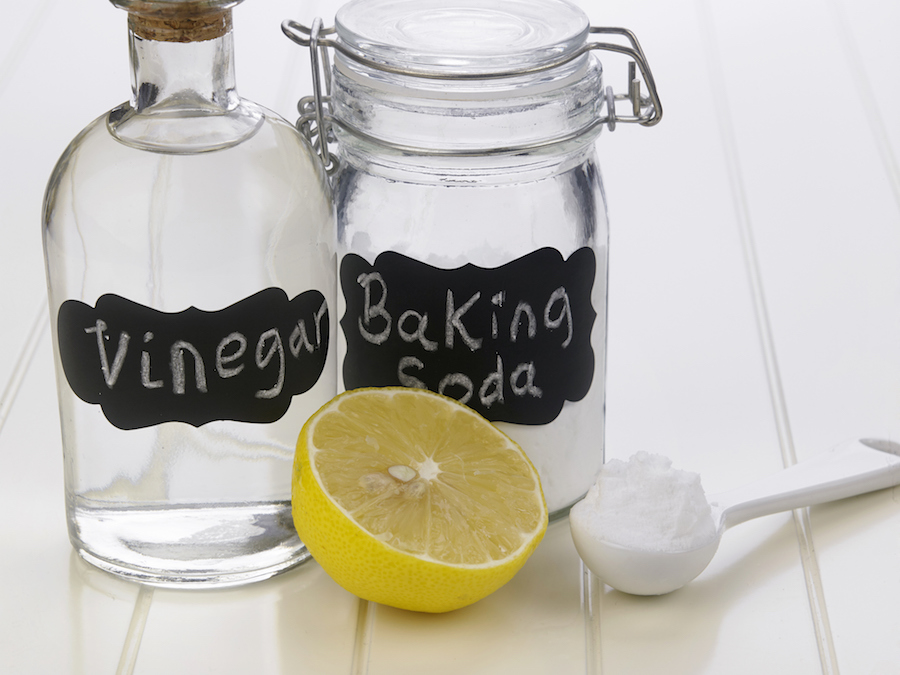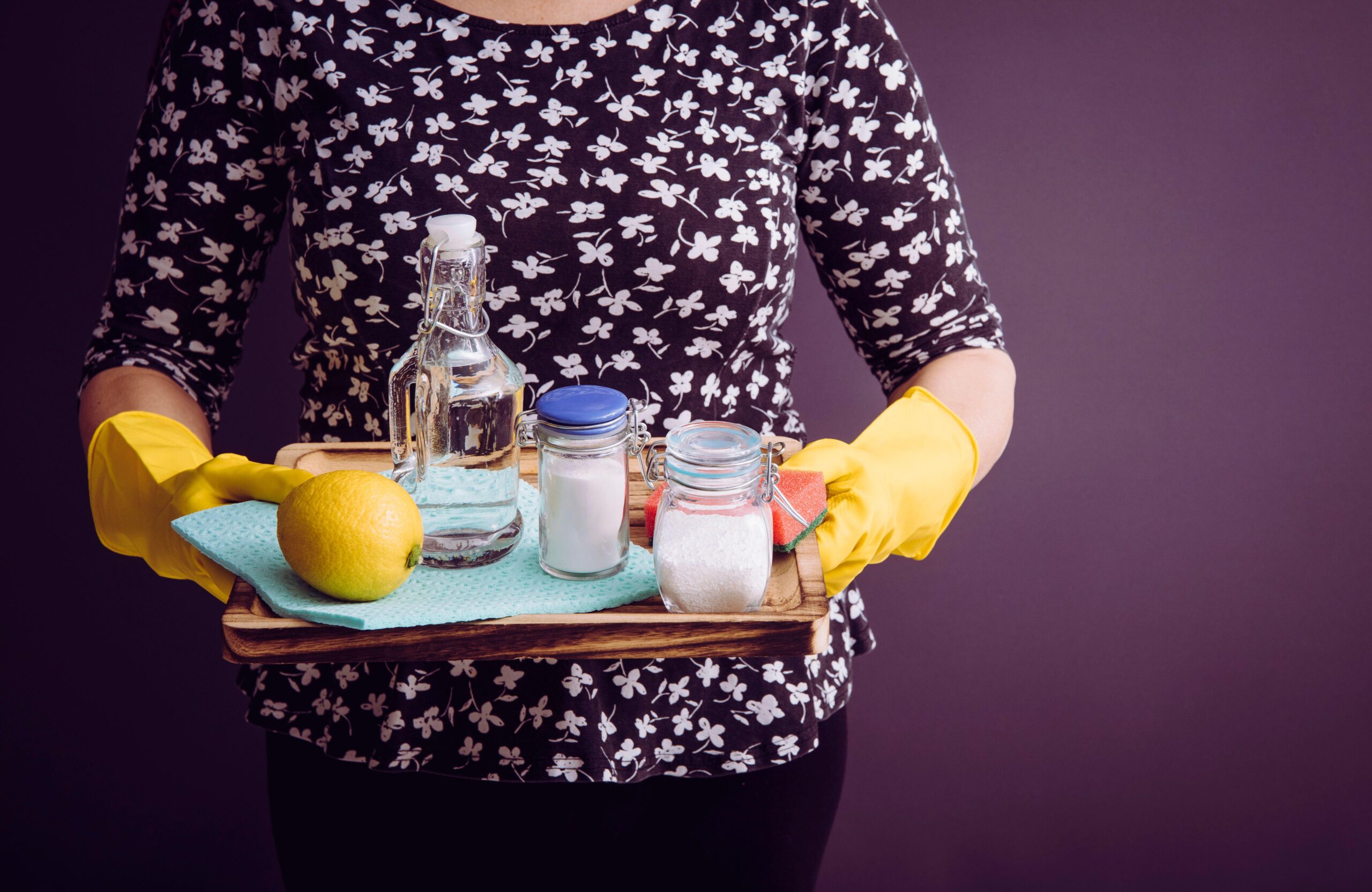Want to get your home as clean as possible? Here are some simple tips from NHS cleaners
From shifting grease marks with lemon juice to killing germs with white vinegar, these are the tricks hospital cleaners use to clean their own homes.
The pandemic means it’s never been more important to keep our homes as clean as possible. And while keeping them as germ-free as a hospital may be a step too far, it’s certainly something to aspire to.
But while new research by disinfectant company Hydrus Hygiene suggests nearly half (47%) of people in the UK say keeping their home clean and tidy improves their mental wellbeing, and millions are cleaning more regularly than they did before the pandemic, psychologists are concerned about people taking their ‘Covid cleaning’ too far and becoming obsessed with it.
“A clean and tidy living space can reduce stress and anxiety, leaving you feeling more energised and positive,” explains psychologist Dennis Relojo-Howell, founder of the online psychology platform Psychreg.
“However, things should be done in moderation, as many health psychologists warn overcleaning can have an impact on people’s mental wellbeing. Cleaning shouldn’t just be a coping mechanism, as this could start to exacerbate your stress, rather than reduce it.”
Hospital cleaners play a vital role in keeping our hospitals safe and free of infection. Please share for these unsung heroes. pic.twitter.com/OdCOCWkjkI
— NHS Million 💙 (@NHSMillion) February 15, 2017
Although it’s best to try not to become obsessed with cleaning, it’s definitely worth doing it well when you do pick up a cloth and cleaning spray. And who better to take a few good cleaning tips from than the army of NHS Property Services domestics who help keep NHS hospitals spick and span?
“We’ve all witnessed how important keeping ourselves and our homes clean has been this year as the pandemic has continued to impact us,” says Sonia Marina Santos, domestic team leader for NHS Property Services health centres in the Cambridge area.
“We’re beginning to open our homes up to family and friends, and this means keeping cleanliness front of mind is more important than ever, particularly as we approach what could be a challenging cold and flu season.
“As cleaners within NHS Property Services, we want to share our key tips on how to keep your home as clean and safe as we keep our NHS facilities – by keeping our homes clean and doing what we can to prevent the spread of any forms of disease, we can all play our part in keeping our loved ones safe.”
Here are a selection of tips from domestics at NHS hospitals and clinics around the country…
Cleaning the bathroom
About to clean my bathroom. pic.twitter.com/k7Q5UZm6yj
— Tim Vine (@RealTimVine) August 19, 2021
To give bathroom tiles a great clean, put some bleach on a cotton bud and rub it along the grout in places where you see mould, suggests Charly Giles, a domestic assistant for NHS facilities in Portsmouth. “After a couple of minutes, rub another cotton bud along the grout to absorb the bleach and wipe away any mould residue and they’ll be as good as new.
“While you’re doing your bathroom spruce-up, pour some bicarbonate of soda down your sink plug hole and watch it quite literally bubble away all the dirt. It leaves your plug holes looking clean and even makes them smell really nice, getting rid of any bad bathroom smells – bonus!”
Cleaning the kitchen
MT @HomeZada: What part of your #kitchen do you clean EVERY DAY? ✨ pic.twitter.com/rJL4nPgL2e #realestate #kitchencleaning #housecleaning #homemaintenance pic.twitter.com/d6EIfqiyFA
— CAPITOL TITLE (@CapTitle) August 1, 2021
Another domestic assistant for NHS facilities in Portsmouth, Colleen Brain, says using lemon juice is a great way to clean stubborn grease stains in the kitchen. “It’s quick and easy, and loosens grease up before you clean, making your chores a lot easier,” she says. “As a nice bonus, lemon also makes your kitchen or bathroom smell inviting and fresh – no wonder so many cleaning products are lemon scented. It’s a great environmentally-friendly alternative to use the real thing when you can!”
And for cleaning the oven, simple soap and washing up liquid can work wonders, promises Maureen Giles, a domestic at Werrington Health Centre in Peterborough. “If you’re like me and keep putting off cleaning your oven, just take out all the shelves, pop them in a shallow tray of soap, hot water and washing up liquid, and leave them for as long as you can. When you come to scrub them clean, the build-up just comes right off.”
Cleaning the living room

For hard-to-reach places behind sofas or cabinets, use a little hand brush to clean, suggests Dawn Cromack, a domestic assistant at Cleveland Health Centre.
And Kelly Barton from the Integrated Care System (ICS) South Cumbria & Lancashire, adds: “When you’re dusting, carry a spray bottle of water and spritz your brush to prevent dust from flying into the air or falling from high areas.”
Cleaning wooden furniture
Don’t forget to clean the wooden furniture in your home, says Lee Pearson, a general assistant at St Charles Hospital in London. “A lot of people often forget wood needs cleaning regularly too – dust and germs can collect there as we use and touch our furniture so often,” he points out.
“I use mineral spirits on a simple microfibre cloth to remove the dirt and lift it off almost instantly, and then a little eco-friendly trick is to add some essential oil (I like lavender) to furniture polish to give it a final buff. It looks great and the oils smell wonderful for a long time. In winter, I like to use warm and homely essential oil scents like orange, clove and cinnamon in my cleaning – they make my home smell like Christmas.”
No need for harsh chemicals

Try natural cleaners like white vinegar, lemons and bicarbonate of soda
Look for readily available cleaning ingredients in your home, suggests Piotr Kolenda, a domestic assistant for the NHS in Portsmouth. “There’s no need to use harsh chemicals if you have two of my favourite cleaners at hand – simple white vinegar and bicarbonate of soda,” he says. “These are fantastic for so many things, but I love using them to remove stubborn stains quickly. After a few minutes their smell goes away, so you’ll never even know they were used as cleaners – but the results are brilliant.”
And Sonia Marina Santos adds: “Some people may not know that white vinegar is a very good disinfectant. When you come home from shopping, rinse your fruit and vegetables in a mix of water and white vinegar to kill germs instantly – this is a great eco-friendly way of keeping germs at bay. You can also rinse packaged food the same way after shopping to stop germs spreading through touch, especially during the winter when colds are looking for easy ways to spread.”
And that’s not the end of white vinegar’s talents, says Lorraine Beer, a domestic assistant from Barking Community Hospital. “I swear by cleaning windows with white vinegar in lukewarm water. Dry them off with a kitchen towel and they’ll glisten,” she promises.
The Press Association
Latest posts by The Press Association (see all)
- 3 easy Mary Berry recipes to make this season - November 22, 2024
- In Pictures: Party stalwart kept New Labour in touch with traditional supporters - November 21, 2024
- 6 easy indoor exercises to try this winter – and why they are good for you - November 19, 2024
- Martin Clunes: I can’t afford to retire – I’ve got too many horses - November 19, 2024
- How to avoid plant losses, flowering disappointments and container catastrophes - November 17, 2024





















